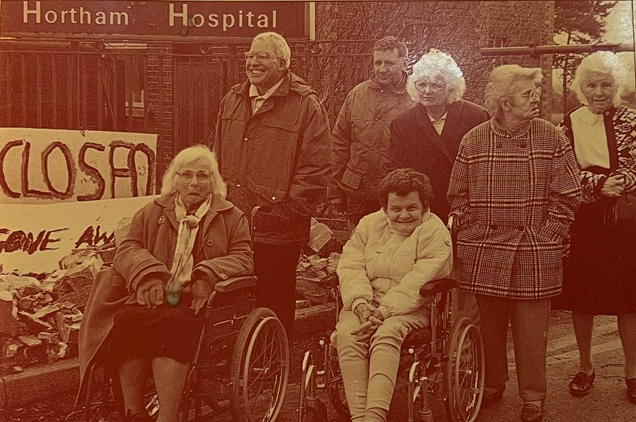It’s hard to pinpoint exactly when Hortham’s cards were marked, we know it took at least 10 years for the hospital to finally close though. It was Enoch Powell’s (then Health Minister) famous ‘Water Tower’ speech back in 1961 where he was suggesting that the Victorian era Lunatic Asylum culture should end and that people with Mental Health conditions could be cared for in the community. At some point in the 1980’s Southmead Health Authority had been very open that there was to be a shake up with mental handicapped care, with proposed changes to Ham Green, Brentry and the closure of Hortham and Farleigh.
It seemed like the authority were still plowing money in to improvements at the hospital despite patient numbers actually declining. Councils were now encouraging families to care for handicapped children at home and providing day centers’ and specialist provisions and staff at local schools.
The policy of “Care in the Community” was introduced in the UK in the 1980s as a way to move people with mental health problems out of large institutions into community-based care settings.
This policy was driven by a number of factors, including concerns about the quality of care in psychiatric hospitals, the high cost of institutional care, and a growing recognition of the benefits of community-based care, which emphasized the importance of supporting people to live as independently as possible. This process was supported by the development of new treatment options, such as anti-psychotic medications, which made it possible for people with mental health problems to be successfully treated outside of hospital settings.
While the closure of psychiatric hospitals was not solely due to the policy of “Care in the Community,” it played a significant role in shifting the focus of mental health care in the UK away from large institutions and towards community-based care. This shift was seen as a way to provide more personalised and effective care, while also reducing the stigma associated with mental health problems.
The proposed closure of Hortham was met with lots of resistance from staff, patients, councilors and local people alike. Staff in theory would be moved to other sites, but people were concerned as to what care the patients would get if the hospital were to close, with many long term residents there now effectively institutionalised. However the health authority had suggested they would provide smaller domestic style homes with support staff to help care for those that may struggle, others had already been moved to private residential homes. And of course local people were concerned that the previously stigmatised mentally ill people would be left roaming the streets…
Hortham’s last resident moved out in Dec ’91 and the hospital was closed forever after 60 years of service.

